5-Star Rated Driveway, Patio, Walkway Paver Installation Specialists in Palm Beach County, Florida
Why Choose Pavers for my Next Project
Why choose pavers?
• They're affordable
• Come in a wide variety of styles—think rustic stone, cobblestone, or modern slate looks.
• Stronger than poured concrete (8,000 psi)
• Won’t crack like slabs
• Can be removed for repairs
• Low maintenance
• Great for all climates
What Kind of Pavers Should I Use?
Concrete pavers are a top choice. Clay pavers are another option, but they only come in limited colors and one size (4x8 bricks), so design options are more limited.
Want to get creative? Mix in borders, patterns, or different textures to make your space stand out.
What Are Pavers Used For?
Pavers can be used for almost any outdoor surface. Most commonly, they’re used for:
• Driveways
• Walkways
• Patios
• Pool decks
• Retaining walls
• Outdoor kitchens
Note: Pavers are ideal for driveways because they flex and move, which helps prevent cracking.
Use smaller pavers for driveways so they hold up better under vehicle weight.
What Should I Consider for a New Paver Project?
Keep these in mind:
• Design and layout
• Color selection
• Patterns for both the main area and borders
• Paver style
You can also customize by widening or curving paths, flaring entryways, or using textured or tumbled pavers. Don’t worry—we’ll help you explore all the possibilities.
Whether you opt for concrete, brick, or natural stone, pavers offer a durable and attractive way to enhance your outdoor space and increase your home’s value. Let us guide you in selecting the ideal pavers and designing the perfect project to create an outdoor area you’ll enjoy for years to come.
Composition of Pavers
What Are Pavers Made Of?
Typical materials include:
• Concrete
• Brick or clay
• Natural stone
Which Natural Stones Are Commonly Used for Pavers?
Some of the most popular natural stones for paver projects include:
• Travertine
• Granite
• Slate
• Limestone
• Basalt
• Flagstone
• Fieldstone
• Marble
Natural Stone Pavers are considered high end materials. They are cut in the form of pavers. Installation is very similar to that of a standard 1 ¼”” paver. They come in many shapes, colors and sizes and their price depend on market conditions. They add a classy and natural feel to your installation.
Each type varies in appearance, strength, and how much heat it absorbs, so it’s important to choose based on your location and specific needs.
Each material offers its own advantages and drawbacks, so the best choice depends on your personal style and project needs.
How Do Pavers Compare to Stamped Concrete?
Stamped concrete tends to crack, fade, and is difficult to repair.
In contrast, pavers are:
• More durable and longer-lasting
• Easier to repair by replacing individual pieces
• Removable and replaceable
• Installed without the need for expansion joints
• Improve in appearance over time
• Highly customizable to fit any style
• Low maintenance
• Environmentally friendly
• Comparable in installed cost per square foot
How Long Does it Take to Finish a new Paver Installation Project
After permits are approved and materials are ready, we schedule your project start date within 2 weeks.
On average, to complete a project, depending on weather, size of the project, soil conditions and other variables, we can generally finish:
• Small patios and walkways: 1-2
• Driveways: 3-5 days
• Pool Decks: 5-6 days for
Project clean up (removal of debris and leftovers) happens usually a day after the installation has been fully completed.
Are Paver Projects Expensive?
The cost can vary depending on:
• The size and layout of the area
• The type of paver material
• Site conditions (such as slope, soil, or accessibility)
Pavers are a long-lasting investment and often more affordable than people expect. Want an estimate? We provide them free of charge.
What About Permits?
In Palm Beach County, most paver projects require a permit. Approval typically takes about 45 business days. A current property survey is always required.
Permit fees and runner charges are not usually included in the initial quote—they’re billed separately at the end of the project once all actual costs are known.
Homeowners are responsible for obtaining HOA approval, if applicable. However, we will assist by providing all necessary drawings, licenses, and insurance documentation.
What’s the Paver Installation Process?
Pavers are installed using a sand-set method. Here’s a breakdown:
• Base Layer: All installations start with a layer of coarse sand.
• Driveways & Heavier Loads: A DOT-approved rock base is added beneath the sand for extra strength.
• Joint Sand: Once the pavers are laid, sand is swept into the joints to lock them in place. This joint sand isn’t grout and doesn’t need to be topped off unless pavers begin to shift.
• Edge Restraints: Concrete edging—or another ICPI-approved method—is used around the perimeter to keep the pavers secure and in position.
Why are they called “interlocking” pavers?
Pavers are interlocking units—usually bricks or stones—installed tightly together without the use of poured concrete.
The joints between them are filled with sand or fine gravel to keep them securely in place.
Because the whole system (pavers, sand, edge restraints) works together to keep them in place and flexible under pressure.
Do Pavers Move?
Yes- a little, and that’s a good thing! They flex slightly instead of cracking, unlike concrete. If needed, they can be lifted and reset—for example, if tree roots shift them or a paver breaks.
Can I Install Pavers Over My Existing Concrete Surface?
Yes—this is often possible, especially for pool decks, patios, walkways, or porches—as long as the concrete is in good condition (no major cracks or shifting).
Thin pavers (30mm) can be installed over sand placed on top of the concrete. However, keep in mind:
• The finished surface will be about 1.2 inches higher
• If the concrete settles or shifts, the pavers will likely shift too
Best Practice:
For long-term durability, it’s recommended to remove the concrete and install full-thickness (60mm) pavers over a proper base.
Driveway Caution:
Installing pavers over concrete driveways is not advised. The weight of vehicles, boats, and other heavy loads requires a flexible base. Without it, the pavers may crack or become unstable over time.
Can I get pavers in different colors?
Is there a price difference in paver colors?
Yes. Pavers made with white cement (used for lighter or more vibrant colors) cost about 8–10% more than those made with gray cement.
Do pavers have color all the way through?
Yes, the color is consistent throughout the entire paver—not just on the surface.
Comparison: Grey Cement Pavers vs. White Cement Pavers
Grey cement pavers tend to have a darker appearance compared to white cement pavers. While both types are identical in terms of structural and mechanical properties, their uses often differ. Grey pavers are commonly chosen for driveways, whereas white cement pavers are preferred for pool decks and patios due to their lower heat absorption.
Do Pavers Fade Over Time?
Yes—especially darker colors. But sealing them helps prevent fading and keeps them looking fresh.
Do my Pavers Need to be Cleaned?
How do I get rid of moss or mold on my pavers?
Mix 1 part Clorox bleach with 10 parts water and apply it to the affected area—just be careful to keep it away from plants. Keep in mind, moss and mold will likely return if the area remains damp and shaded. The best long-term fix is to improve drainage and sunlight exposure.
How do I clean oil or grease stains?
Use a cleaner made for pavers, like those from SureBond or Techni-Seal. Clean the surface before applying any sealer and make sure it’s fully dry first.
What if my pavers get stained or damaged?
No problem—just remove the affected pavers and replace them. Use two flathead screwdrivers to lift them out.
Do Pavers Need to Be Sealed?
Yes, sealing is strongly recommended and must happen at least 30 to 60 days after their installation for technical reasons (efflorescence, curing, etc.).
Sealant should be reapplied every 2–5 years to maintain appearance and protection
Why Seal Your Pavers?
Applying a sealant offers several benefits:
• Enhances and protects color
• Reduces fading from the sun
• Repels dirt and moisture
• Helps prevent stains
• Makes mold and moss easier to clean
• Protects against weather-related surface wear
• Keeps joint sand in place for stability
• Blocks dirt and weeds from settling in gaps
• Discourages ants from nesting between pavers
Additional Notes About Sealing Pavers:
• Sealer is usually applied immediately after installation—especially for travertine or other natural stone surfaces.
• Sealing can alter the texture of the surface, often making it more slippery.
• Some sealers enhance the paver’s color, while others preserve the natural look.
• Sealant does not increase the structural strength or lifespan of the pavers.
• Reapplication is recommended every 2–4 years to maintain appearance and protection.
What About Porcelain Pavers?
Porcelain pavers are man-made and come in various thicknesses (like 2cm or 3cm) depending on the use—whether for decks, patios, or driveways. They're available in large formats and installed similarly to natural stone pavers, though proper cuts, joint sand, and edge restraints are essential for a level finish.
They don’t need sealing, but still require regular maintenance due to outdoor exposure.
Will Weeds Grow Between Pavers?
Weeds can grow between pavers if the joints are left untreated or if seeds land and settle in the sand. To minimize weed growth:
• Use polymeric sand (also known as poly-sand or SuperSand), which hardens when moistened and helps block weeds while reducing sand erosion.
• Apply a weed preventer like Preen, or spot-treat with a weed killer such as Round-Up as needed.
What Is the White Film on My Pavers?
That white, chalky residue is called efflorescence—a natural, harmless salt deposit that appears on the surface.
It typically fades on its own within 6 to 12 months, but if you'd like to speed up the process, you can use a specialized product like Techni-Seal Efflorescence Cleaner.
Important:
Never use muriatic acid, as it can permanently damage your pavers
Do Pavers Need to Be Level?
Pavers should appear level, but they are installed with a gentle slope to allow proper water drainage and prevent pooling on the surface.
Do Pavers Require Edging?
Yes. In Florida, concrete edging is preferred over plastic with spikes because it provides better stability in soft soil and offers a cleaner, more polished look.
Paver Thickness, does it matter?
For residential driveways, pavers are typically 2 3/8” (60mm) thick. There are also thinner remodel pavers, about 1 1/4” (30mm) thick, designed to be installed over existing surfaces like concrete patios and pool decks using a layer of coarse sand.
Do Pavers Get Hot?
Yes, particularly under the Florida sun. Darker pavers retain more heat, though even lighter-colored concrete can warm up.
Tip: For pool decks or sunny areas, a quick rinse with water can help cool the surface before walking barefoot.
Can Pavers Support a Hot Tub?
Yes, definitely. We create a reinforced base—typically 6 to 7 inches thick—to handle the weight.
Some homeowners choose to add a concrete pad beneath the pavers for added support, but it’s optional. Both methods work well.
5-Star Rated Driveway, Patio, Walkway Paving
Contractor in Palm Beach County, Florida
Hardscape Design & Installation Services
We are proud to serve Palm Beach County Communities by creating stunning, functional outdoor spaces.
Our Hardscape Design & Installation services specialize in enhancing pool decks, patios, walkways, and driveways with high-end materials like travertine, marble, porcelain, and interlocking concrete pavers.
Our approach includes:
- Thoughtful design tailored to your home’s architecture, site, style, and budget
- Precision installation by experienced craftsmen
- Durable materials such as concrete, natural stone, and porcelain pavers
- Pressure washing & sealing using high-grade equipment and eco-friendly cleaners
- Repairs and maintenance for long-term performance and beauty
Whether you're envisioning classic concrete pavers or elegant stonework, our team ensures every project is built to last and designed to impress.
We take pride in every job we work on, no matter how big or small. With attention to detail, quality materials, and experienced professionals, we are committed to exceeding your expectations and delivering outstanding results. We understand the unique needs of our Orangevale, CA community and work tirelessly to provide personalized service and support. Contact us today to discuss your concrete project needs and receive a free estimate.
Contact us today to learn how we can transform your landscape with timeless beauty and lasting performance.

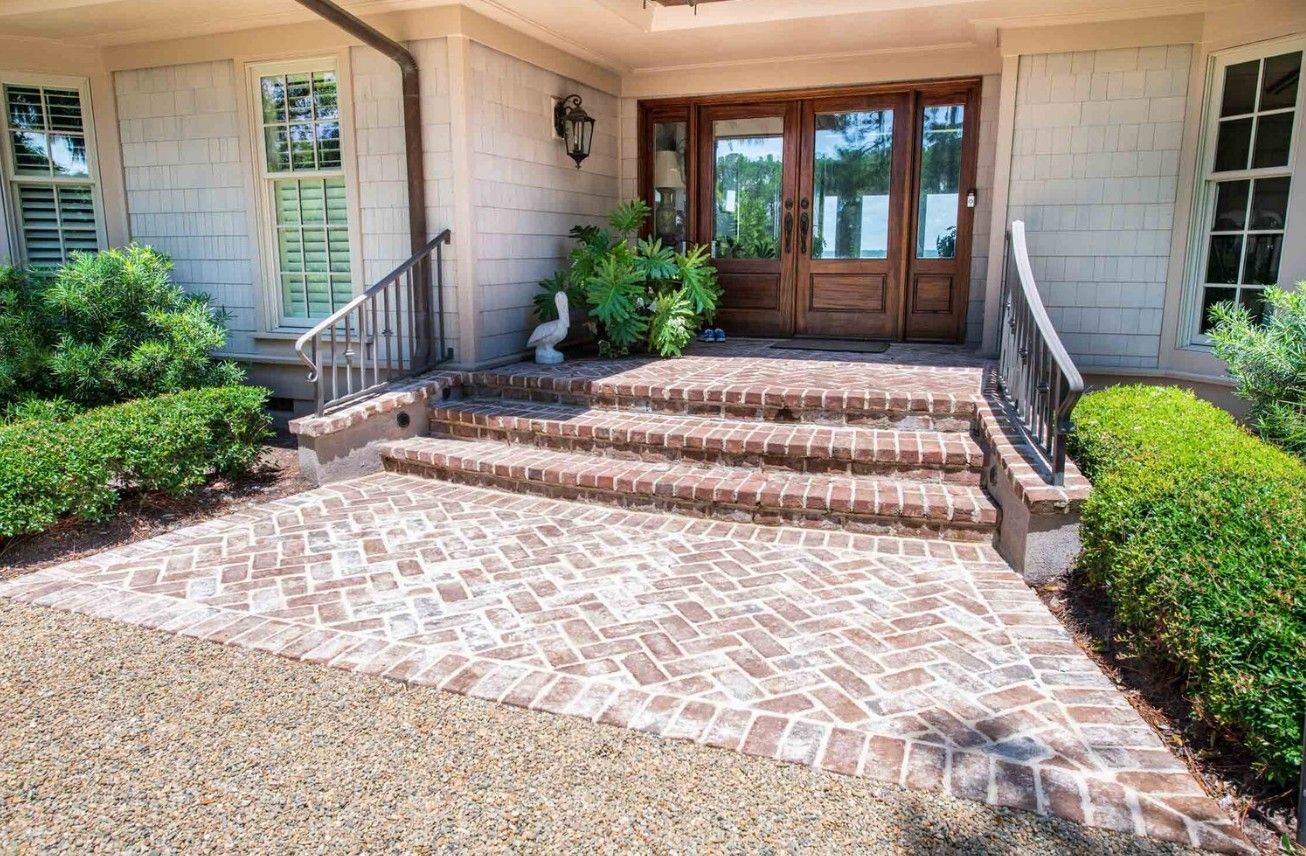
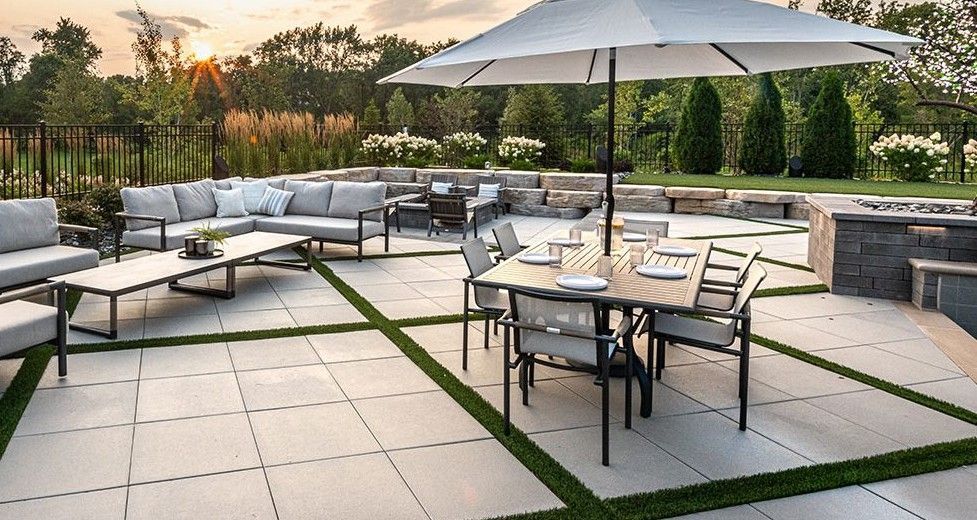
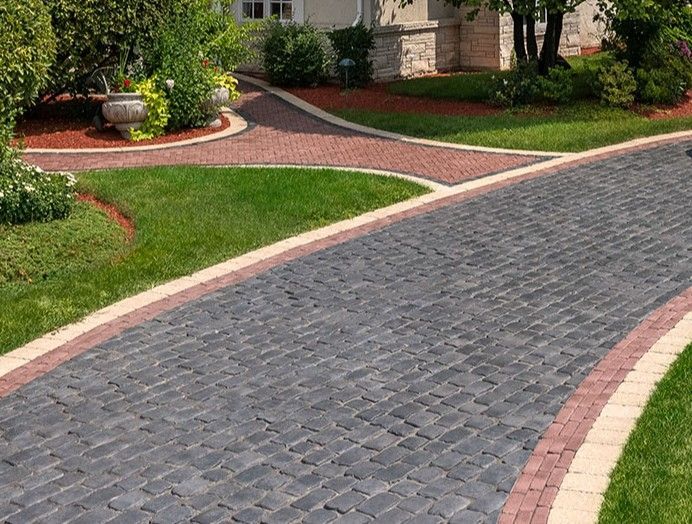
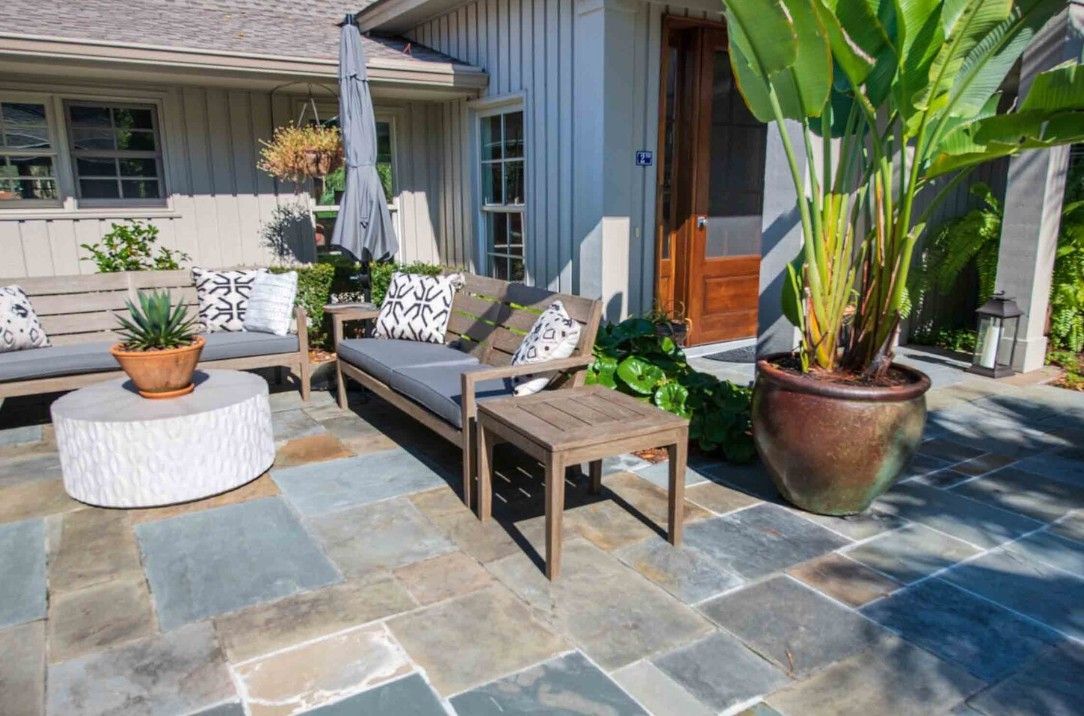
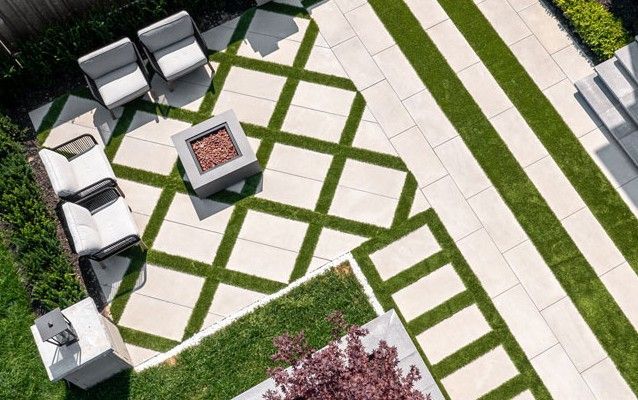
Build Your Outdoor Oasis
Our expert hardscape solutions help bring that vision to life. With our commitment to quality materials, aesthetic detail, and functional design, your home’s curb appeal and value will reach new heights.
We specialize in:
- Installing Paver Driveways
- Installing Paver Pool Decks
- Installing Paver Patios
- Installing Paver Walkways
- Pressure Washing & Sealing
- Paver Repairs
Frequently used materials include:
- Travertine (top-grade & climate-ready)
- Marble
- Porcelain
- Interlocking Pavers